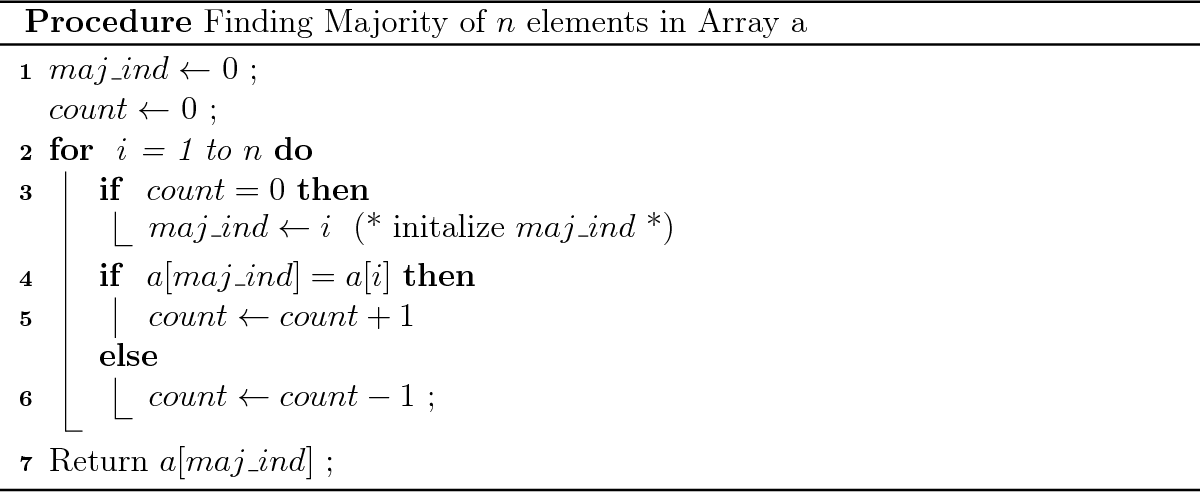|
|
马上注册,结交更多好友,享用更多功能^_^
您需要 登录 才可以下载或查看,没有账号?立即注册
x
Given an array nums of size n, return the majority element.
The majority element is the element that appears more than ⌊n / 2⌋ times. You may assume that the majority element always exists in the array.
Example 1:
Input: nums = [3,2,3]
Output: 3
Example 2:
Input: nums = [2,2,1,1,1,2,2]
Output: 2
Constraints:
n == nums.length
1 <= n <= 5 * 104
-109 <= nums[i] <= 109
Follow-up:
Could you solve the problem in linear time and in O(1) space?
Judy
Python divide and conquer runtime beats 57.23% memory beats 8.57% taught by cs341
- class Solution(object):
- def majorityElement(self, nums):
- """
- :type nums: List[int]
- :rtype: int
- """
- h = len(nums) // 2
-
- def f(lst):
- l = len(lst)
- m = l // 2
-
- if l % 2 == 1 and nums.count(lst[-1]) > h:
- return lst[-1]
-
- if l == 1:
- return lst[0]
- if l == 2:
- if nums.count(lst[0]) > h:
- return lst[0]
- return lst[1]
- nlst = []
-
- for i in range(0, m):
- if lst[i] == lst[i+m]:
- nlst.append(lst[i])
-
- return f(nlst)
-
- return f(nums)
Python boyer more majority vote algorithm runtime beats 65.21% memory beats 67.84% taught by sol
- class Solution(object):
- def majorityElement(self, nums):
- """
- :type nums: List[int]
- :rtype: int
- """
-
- x = 0
- c = 0
- for n in nums:
- if c == 0:
- x = n
- c += 1
- elif x == n:
- c += 1
- else:
- c -= 1
-
- return x
Sol1
- class Solution {
- public:
- int majorityElement(vector<int>& nums) {
- int count = 0;
- int candidate = 0;
- for(int i = 0; i < nums.size(); i++){
- if (count == 0){
- candidate = nums[i];
- }
- if(nums[i] == candidate){
- count+=1;
- }else {
- count-=1;
- }
- }
- return candidate;
- }
- };

|
|
 ( 粤ICP备18085999号-1 | 粤公网安备 44051102000585号)
( 粤ICP备18085999号-1 | 粤公网安备 44051102000585号)